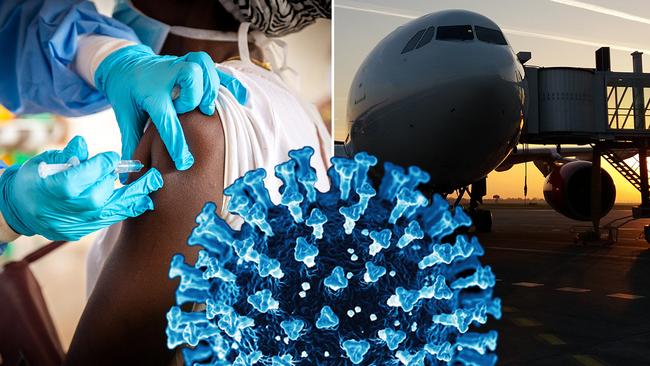Catherine Bennett: Ominous Omicron must be kept at the border
It will take weeks to understand the threat of the new Covid variant but in the meantime we must take precautionary measures to keep Omicron out.

News
Don't miss out on the headlines from News. Followed categories will be added to My News.
We have a lot to learn about Omicron, the new Covid virus variant discovered earlier this month in southern Africa.
We do know it carries an unusually high number of mutations and is now designated a Variant of Concern by the World Health Organisation.
There are various ways a variant can make it on to this horrid list – if it spreads more easily, causes more serious illness, or if current vaccines, treatments, diagnostic tests or other prevention measures do not work as well.
Omicron appears to have emerged in South Africa where most cases are concentrated but has also been detected in Botswana where it was first recognised and in travellers in Hong Kong and Belgium.
The UK, EU, US and Singapore are among the jurisdictions that have imposed travel restrictions from the region, and, on Saturday, Australia joined them.
We don’t yet know the threat that Omicron might pose, and a huge research effort is underway to learn more, but there is already sufficient unease that this may be more infectious to call it a Variant of Concern given the rapid rise in cases in South Africa coinciding with the variant’s emergence.
The proportion of South Africans fully vaccinated is low, only 25 per cent, so not enough to protect the population from a surge in cases even if vaccines are still effective.
But there are also reports of high rates or reinfection, suggesting even prior infection may not be protective.
The one piece of encouraging news from our Chief Medical Officer was of reports that most hospitalised cases are unvaccinated, so no signals yet that this variant might escape vaccine protection from serious illness.

Australia is acting early to limit the chances of Omicron landing on our shores by restricting travel into Australia if passengers have been in one of nine southern Africa countries in the last 14 days. We are also ensuring those who have already arrived, or citizens and permanent residents yet to return, are tested and isolated appropriately.
There is some positive news from South Africa that might help us to stay safe – PCR testing not only still works, but this variant might have a particular signature on certain PCR tests.
Being able to screen for this variant at the preliminary testing stage would help monitor for the variant across all international arrivals as well as in our community.
The earlier you see the variant, the more effective the response can be.
The best-case scenario for Australia is if our high, recently achieved, vaccination coverage means Omicron does not pose a threat of rapid spread, more serious illness or treatment failure.
But it will take some weeks to understand the threat, and, in the meantime, we must take precautionary measures to keep Omicron out.
Keeping this variant at the border is our best protection from more drastic control measures should we decide this variant poses too great a threat once already in the community.
Professor Catherine Bennett is Deakin University’s Chair in Epidemiology
Originally published as Catherine Bennett: Ominous Omicron must be kept at the border


